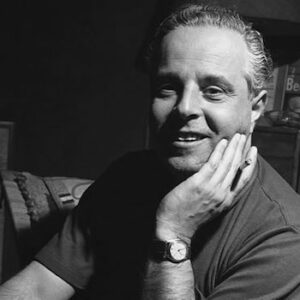
Alfred Lion
*Alfred Lion was born on this date in 1908. He was a white Jewish-American jazz record executive.
Lion was born in Schöneberg, a borough of Berlin, Germany. His fascination with jazz began at the age of 16. In 1926, Lion emigrated to the United States, but while working on the New York docks, he was attacked by an anti-immigrant worker; he returned to Germany to recover. From 1933, Lion lived in South America, working for German import-export companies, returning to New York in 1938.
His attendance at the From Spirituals to Swing concert at Carnegie Hall inspired him to start a record label. In partnership with Max Margulis, who supplied the start-up capital, Lion founded Blue Note Records. In the label's first record session on January 6, Lion recorded boogie-woogie pianists Albert Ammons and Meade Lux Lewis. The company's first hit was Sidney Bechet's recording of "Summertime." By the time Lion was drafted into the army and under the wing of Milt Gabler and his Commodore Music Store, Wolff sustained the business in Lion's absence.
After persuading Ike Quebec, an artist and repertoire (A&R) man, Lion began to explore more modern jazz developments. Quebec introduced Lion to Thelonious Monk, the first 'modern' jazz musician Blue Note to record. Blue Note and Lion continued his label's association with Bechet and clarinetist George Lewis into the 1950s. What became known as the "hard bop" style would predominate in Blue Note's output during the 1950s and 1960s. In the mid-1950s, however, Blue Note was a struggling label, hit by the record industry's changeover to the 12" LP format.
Still, the popularity of the organ/soul jazz craze, driven by Jimmy Smith's innovative work, ensured that the label survived. Blue Note also recorded avant-garde musicians like Andrew Hill and Cecil Taylor. Lion's discovery of Hill, which he would later cite, along with his earlier involvement with Thelonious Monk and their fellow pianist Herbie Nichols, gave him particular pleasure during his career. Duke Pearson, in 1963, helped to ensure that the label's roster remained current.
Having suffered from heart problems, Lion retired in 1967 and sold the Blue Note label and catalog to Liberty Records in 1965. Wolff stayed with the label until he died in 1971. Liberty Records, in turn, was acquired by United Artists, and the Blue Note imprint went dormant until it was revived under the ownership of EMI. Alfred Lion died of heart failure in Poway, California, on February 2, 1987, at 78.